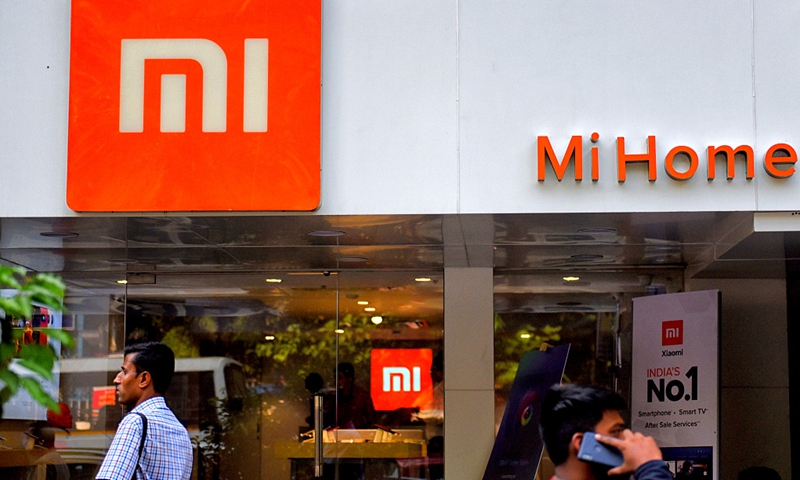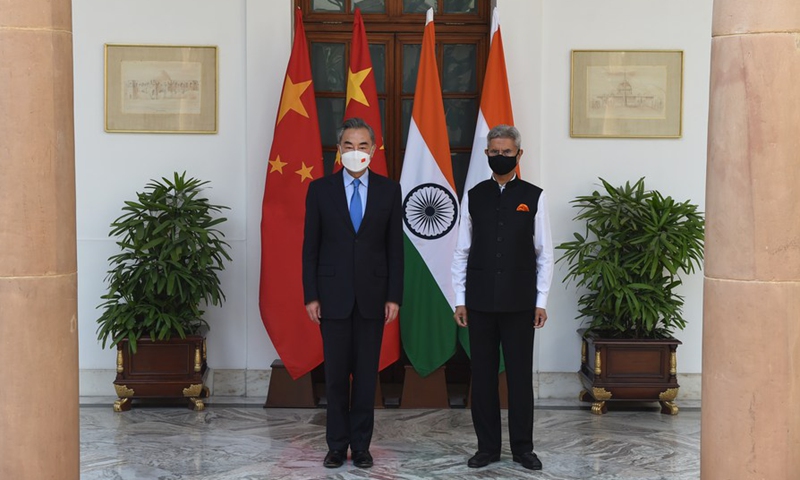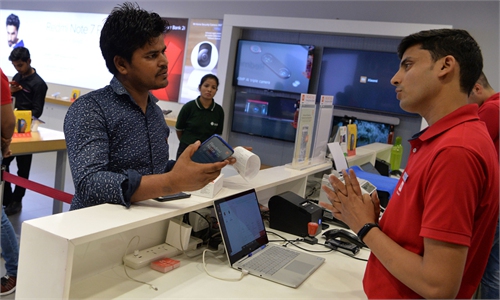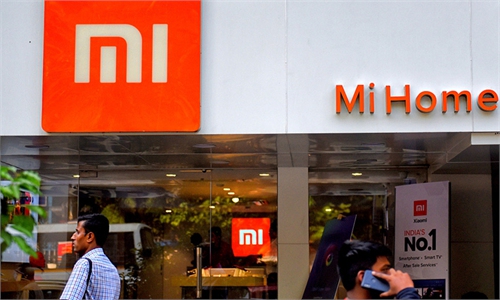India's probe of Xiaomi 'merits attention' amid expectations for easing tensions: insiders

Xiaomi India Photo: VCG
Chinese businesses in India are responding with active and contingency measures including risk management after Chinese mobile phone maker Xiaomi came under an Indian government probe over reported foreign exchange issues, which industry analysts said was a fresh move by India that merits more attention.
While it is public expectation on both sides to ease bilateral tensions after a high-level government officials' meeting in March, the probe of Xiaomi goes against the trend, industry insiders said, urging the Indian authorities to treat Chinese mobile phone companies on a level playing ground.
The Indian federal financial-crime fighting agency has summoned a former head of Xiaomi India in an investigation of whether the company's business practices match Indian foreign exchange laws, Reuters reported on Tuesday, citing unidentified sources.
In responding to the probe, a spokesperson of Xiaomi said in a statement sent to the Global Times Wednesday that "Xiaomi is a law-abiding and responsible company. We give paramount importance to the laws of the land. We are fully compliant with all the regulations and are confident of the same."
Xiaomi is cooperating with Indian authorities with the investigation to ensure they have all the requisite information, the company said.
The latest investigation is a follow-up of the massive probes targeting Chinese companies last year, a clear indication that the government's investigation continues, Yang Shucheng, secretary-general with the India China Mobile Phone Enterprise Association, an industry body that represents the Chinese mobile industry in India, told the Global Times on Wednesday.
"Last year, some 80 percent of the Chinese companies in India were under investigation, and most of the companies ended it after paying the margin," Yang said.
Industry insiders said that the probe is not only targeting Xiaomi but many other Chinese firms with operations in India. In responding to the probe, contingency measures are being considered by Chinese businesses in India.
To better ensure smooth business operations in India, Yang urged Chinese-funded firms in India to get acquainted with Indian tax laws, especially in the aspects of imported materials, complete machine assembly, sales, scrapping and write-offs.
Harris Liu from the Chinese Chamber of Commerce in India told the Global Times on Wednesday that the chamber is promoting risk prevention, control and self-examination as well as self-correction for Chinese-funded enterprises in India.
The latest move involving Xiaomi does not benefit any side, given the fact that Xiaomi is a major representative of Chinese investment in India, which contributed to local employment, experts said.
"The Indian government has started an unfriendly policy targeting Chinese companies, especially mobile phone producers, last year with additional tariffs and other barriers, in an attempt to push the Chinese companies out of the Indian market," Liu Zongyi, secretary-general of the Research Center for China-South Asia Cooperation at the Shanghai Institutes for International Studies, told the Global Times on Wednesday.
But such a move may hurt its own industries as well, given the high participation and contribution of Chinese mobile companies to the Indian market, Liu noted.
Among the top five in terms of shipments in the Indian smartphone market, Chinese brands account for four -- Xiaomi, Redmi, OPPO and vivo.
Xiaomi ranked first in the Indian market with a share of 24 percent in 2021 in smartphone shipments, and vivo ranked third with a market share of 15 percent, according to data released by Counterpoint Research.
Expectations for easing tensions emerged after after Chinese State Councilor and Foreign Minister Wang Yi's visit to India in March, an encouraging move that has been recognized by Chinese industry representative groups in India.
Apart from this recent incident, there have been no other investigations against Chinese companies this year, insiders said.
Yang said that, in order to support the normal operation of Chinese-funded enterprises in India, visas for employees of Chinese-funded enterprises are still being issued normally.
"Although restrictions are not fully lifted, the success rate of visa applications for employees of Chinese enterprises to India has reached 60 percent since the beginning of 2022 compared with only 10-20 percent in the same period in 2021," Yang said.
"We do hope that the Indian side will treat foreign investors equally, and create an open, fair and non-discriminatory business environment for all enterprises in India," Yang said.



